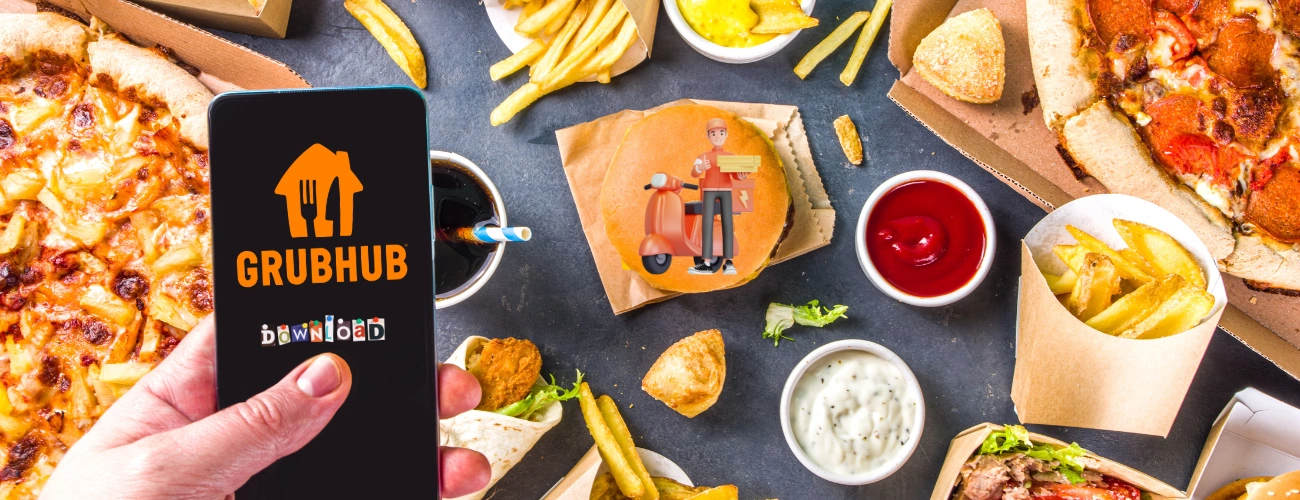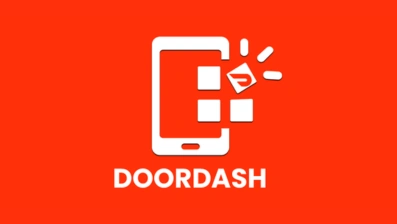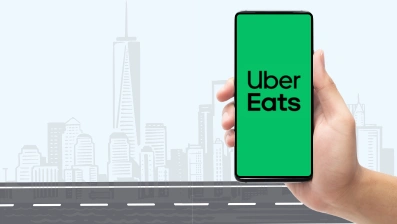Developing an app like GrubHub can be a lucrative venture in today's digital marketplace.
The cost to develop an app like GrubHub typically ranges from $100,000 to $300,000, depending on various factors such as features, design, and technology stack.
Creating a robust and user-friendly food delivery app involves meticulous planning, expert development, and thorough testing to ensure a seamless user experience.
This guide will break down the essential components, costs, and steps involved in GrubHub app development.
Whether you're looking to build a basic version or a comprehensive GrubHub clone, understanding the investment required can help you make informed decisions and plan your budget effectively.
What is GrubHub?
GrubHub is a leading online and mobile food ordering and delivery platform that connects diners with local restaurants.
Founded in 2004, GrubHub has revolutionized the food delivery industry by providing a convenient and efficient way for users to order meals from their favorite eateries.
The platform operates through its website and mobile app, allowing users to browse menus, place orders, and track deliveries in real-time.
GrubHub's extensive network includes thousands of restaurants across multiple cities, offering a wide variety of cuisines to cater to diverse customer preferences.
The app is designed to provide a seamless user experience, with features like advanced search filters, personalized recommendations, and secure payment options. In addition to this, GrubHub offers various promotions and loyalty programs to enhance customer retention and satisfaction.
The success of GrubHub lies in its ability to streamline the food ordering process for both customers and restaurants.
For diners, it eliminates the need for phone calls and provides a digital menu with detailed descriptions and reviews.
For restaurants, it offers a platform to reach a broader audience, manage orders efficiently, and increase sales without the hassle of handling deliveries themselves.
By bridging the gap between consumers and food establishments, GrubHub has become a cornerstone in the food delivery market.
Features of GrubHub
Developing an app like GrubHub requires integrating several essential features to ensure a seamless and efficient user experience.
These features are designed to cater to both customers and restaurants, making the food ordering and delivery process smooth and convenient.
User Registration and Profiles
User Registration: Easy sign-up options using email, phone numbers, or social media accounts.
User Profiles: Detailed user profiles where customers can save personal information, delivery addresses, and payment methods.
Restaurant Listings
Comprehensive Menus: Detailed menus with descriptions, prices, and images of food items.
Search and Filter Options: Advanced search filters to help users find specific cuisines, dishes, or restaurants based on location, ratings, or popularity.
Restaurant Details: Information about restaurant operating hours, delivery times, and user reviews.
Order Placement and Management
Easy Ordering: Simple and intuitive ordering process with options to customize orders.
Order History: Access to previous orders, making it easy for users to reorder their favorite meals.
Real-Time Order Tracking: GPS-enabled tracking to allow customers to see the real-time status of their orders and estimated delivery times.
Payment Integration
Multiple Payment Options: Secure payment gateways supporting credit/debit cards, digital wallets, and cash on delivery.
Promotions and Discounts: Integration of promo codes, discounts, and special offers to attract and retain users.
Notifications and Alerts
Push Notifications: Timely updates about order status, delivery progress, and promotional offers.
Email and SMS Alerts: Notifications via email and SMS to keep users informed about their orders and account activities.
Ratings and Reviews
User Feedback: Allow users to rate restaurants and delivery services, and leave reviews based on their experiences.
Review Management:Enable restaurants to respond to customer feedback and improve service quality.
Customer Support
In-App Support: Access to customer support through chat or call within the app to resolve any issues or queries.
FAQ Section: Comprehensive FAQ section to address common questions and concerns.
Restaurant Management Dashboard
Order Management: Tools for restaurants to manage incoming orders, track delivery statuses, and update menus.
Analytics and Reports:Detailed analytics on sales, customer preferences, and performance metrics to help restaurants optimize their operations.
Delivery Management
Driver App: Separate app or module for delivery personnel to manage deliveries, update statuses, and navigate routes efficiently.
Real-Time Tracking: GPS tracking for drivers to ensure timely deliveries and provide accurate ETAs to customers.
By incorporating these features, you can create a comprehensive and user-friendly GrubHub clone that caters to the needs of both customers and restaurants. Each feature plays a crucial role in enhancing the overall functionality and user experience of the food delivery app.
Why Develop An App Like GrubHub?
Developing an app like GrubHub can be a highly lucrative and strategic business move in the fast-growing online food delivery market. Here are some compelling reasons to consider building a GrubHub clone:
1. Market Demand
The demand for online food delivery services has skyrocketed in recent years, driven by the convenience and efficiency they offer.
Consumers increasingly prefer ordering food online over traditional dine-in experiences, creating a vast market for food delivery apps.
By tapping into this demand, you can capture a significant share of the market and build a strong customer base.
2. Revenue Opportunities
Food delivery apps generate revenue through various streams, including:
- Commission Fees: Charging restaurants a commission on each order placed through the app.
- Delivery Fees: Adding a delivery charge to each order, paid by the customer.
- Subscription Plans:Offering premium services or membership plans for exclusive benefits, such as free delivery or special discounts.
- Advertising: Allowing restaurants to advertise their services within the app for a fee.
These revenue streams can create a steady and substantial income for your business.
3. Enhanced Customer Convenience
An app like GrubHub simplifies the food ordering process for customers, providing them with a convenient way to browse menus, place orders, and track deliveries.
The user-friendly interface, combined with features like multiple payment options and real-time order tracking, enhances the overall customer experience, leading to increased satisfaction and loyalty.
4. Expanding Restaurant Reach
For restaurants, partnering with a food delivery app extends their reach to a broader audience.
It allows them to attract new customers who might not have discovered their establishment otherwise.
The increased visibility and accessibility can lead to higher order volumes and improved business growth.
5. Data-Driven Insights
Developing a GrubHub clone provides access to valuable data on customer preferences, order patterns, and market trends.
Analyzing this data can help you make informed business decisions, optimize marketing strategies, and tailor your services to meet customer needs better.
It also enables restaurants to refine their menus and improve service quality based on customer feedback.
6. Competitive Advantage
In a competitive market, having a robust and feature-rich food delivery app can set you apart from competitors.
By offering unique features, exceptional service, and a seamless user experience, you can attract more customers and build a loyal user base.
The ability to adapt and innovate based on market demands and customer feedback further strengthens your competitive position.
7. Scalability and Growth
Starting with a well-designed GrubHub clone provides a scalable foundation for your business.
As demand grows, you can expand your operations to new regions, add more restaurants, and introduce additional features to enhance the user experience.
The scalable nature of the app ensures that your business can grow without significant disruptions or challenges.
By choosing to develop an app like GrubHub, you can leverage the growing trend of online food delivery, tap into multiple revenue streams, and provide enhanced convenience for both customers and restaurants. The strategic advantages and market potential make it a compelling business opportunity in today's digital age.
Average Cost to Develop an App Like GrubHub
Developing an app like GrubHub involves several cost components, each contributing to the overall budget.
The cost to develop such an app typically ranges from $100,000 to $300,000, depending on various factors such as features, design, and technology stack.
Here’s a breakdown of the average cost to develop a GrubHub-like app:
| Component | Estimated Cost |
|---|---|
| App Design | $10,000 - $30,000 |
| Frontend Development | $20,000 - $60,000 |
| Backend Development | $25,000 - $70,000 |
| API Integration | $10,000 - $20,000 |
| Admin Panel Development | $10,000 - $25,000 |
| Testing and QA | $8,000 - $15,000 |
| Deployment | $5,000 - $10,000 |
| Maintenance and Support | $12,000 - $20,000/year |
The table and factors provided offer a comprehensive overview of the typical costs involved in GrubHub mobile app development. Understanding these costs helps in planning and budgeting effectively for a successful app launch.
Factors That Affect GrubHub Development Cost
Developing an app like GrubHub involves various factors that influence the overall cost.
Understanding these factors can help you budget effectively and make informed decisions throughout the development process. Here’s a detailed look at the key factors affecting the cost to develop an app like GrubHub:
1. Complexity and Number of Features
The complexity and number of features you decide to incorporate will significantly impact the development cost. Here are some key features and their estimated costs:
| Feature | Estimated Cost |
|---|---|
| User Registration and Profiles | $5,000 - $10,000 |
| Restaurant Listings | $7,000 - $15,000 |
| Order Placement and Management | $15,000 - $25,000 |
| Payment Integration | $10,000 - $20,000 |
| Real-Time Order Tracking | $20,000 - $30,000 |
| Push Notifications | $5,000 - $10,000 |
| Ratings and Reviews | $7,000 - $12,000 |
| Customer Support | $5,000 - $10,000 |
| Admin Panel | $10,000 - $25,000 |
| Delivery Management | $15,000 - $25,000 |
2. Platform Choice
For mobile app development, you need to decide a platform. Deciding whether to develop for iOS, Android, or both can influence costs. Cross-platform development can be more cost-effective but may compromise on performance.
| Platform | Estimated Cost |
|---|---|
| iOS | $50,000 - $150,000 |
| Android | $50,000 - $150,000 |
| Both Platforms | $100,000 - $300,000 |
3. Design and User Interface
A sophisticated and intuitive UI/UX design enhances user experience but adds to the development cost. Investing in a user-friendly design is crucial for the app’s success.
| Design Component | Estimated Cost |
|---|---|
| Basic Design | $5,000 - $10,000 |
| Advanced Design | $15,000 - $30,000 |
| Custom Animations | $10,000 - $20,000 |
4. Third-Party Integrations
Integrating third-party services such as payment gateways, SMS notifications, and maps for real-time tracking can increase development costs.
| Integration | Estimated Cost |
|---|---|
| Payment Gateway | $5,000 - $15,000 |
| SMS Notifications | $2,000 - $5,000 |
| Map Services (GPS) | $10,000 - $20,000 |
5. Development Team Location
The cost of development can vary based on the location of your development team. Hiring a local team may be more expensive compared to outsourcing to regions with lower rates.
| Location | Hourly Rate |
|---|---|
| North America | $100 - $200/hour |
| Europe | $70 - $150/hour |
| Asia | $70 - $150/hour |
6. Maintenance and Support
Post-launch maintenance and support are crucial for ensuring the app runs smoothly and remains updated with the latest features and security patches.
| Maintenance Service | Estimated Cost |
|---|---|
| Basic Support | $10,000 - $20,000/year |
| Advanced Support | $20,000 - $40,000/year |
Understanding these factors helps in estimating the GrubHub development cost more accurately.
By considering the complexity of features, platform choice, design requirements, third-party integrations, development team location, and ongoing maintenance, you can create a detailed budget and plan for your GrubHub clone development project.
GrubHub Clone Development Processs
Developing a GrubHub-like app involves several stages, each critical to ensuring the final product meets user expectations and business goals.
Here’s a step-by-step guide to the GrubHub clone development process:
Step 1: Market Research and Planning
Market Analysis
Conduct thorough research to understand the food delivery market, target audience, and competitor apps. This helps identify gaps and opportunities for your app.
Feature Planning
Conduct thorough research to understand the food delivery market, target audience, and competitor apps. This helps identify gaps and opportunities for your app.
Budget and Timeline
Define a clear budget and timeline for the project, considering all development phases and potential contingencies.
Step 2: Design
Wireframing
Create wireframes to map out the app’s user interface (UI) and user experience (UX). This provides a blueprint for the app’s design and functionality.
UI/UX Design
Design an intuitive and appealing interface. Focus on creating a seamless user experience with easy navigation, attractive visuals, and responsive design for different devices.
Step 3: Development
Backend Development
Set up the server, database, and APIs to manage data and support app functionalities. Choose a robust tech stack that ensures scalability and security.
Frontend Development
Develop the user-facing part of the app, implementing the UI design and ensuring responsiveness across devices. Use frameworks that facilitate smooth and efficient performance.
API Integration
Integrate essential third-party services such as payment gateways, GPS for real-time tracking, SMS notifications, and social media login options.
Admin Panel Development
Create an admin panel for managing restaurants, orders, customers, and analytics. This should be user-friendly and provide comprehensive control over app operations.
Step 4: Testing
Unit Testing
Test individual components to ensure they work correctly. This helps identify and fix bugs early in the development process.
Integration Testing
Test the integration of various components and third-party services to ensure they work seamlessly together.
User Acceptance Testing (UAT)
Conduct UAT to get feedback from real users. This helps identify usability issues and areas for improvement.
Performance Testing
Test the app’s performance under different conditions, such as high traffic volumes and varied network speeds, to ensure it can handle real-world scenarios.
Security Testing
Conduct security testing to identify and address vulnerabilities. Ensure that user data is protected through encryption and secure access controls.
Step 5: Deployment
App Store Submission
Prepare the app for submission to the Apple App Store and Google Play Store. Follow the respective guidelines for each platform to ensure a smooth approval process.
Backend Deployment
Deploy the backend on a reliable server or cloud service. Ensure that it is configured correctly to handle user requests and data securely.
Monitoring and Analytics
Set up monitoring tools and analytics to track app performance and user behavior. This helps in making data-driven decisions for future updates and improvements.
Step 6: Post-Launch
User Feedback
Collect and analyze user feedback to understand how the app is performing and where it can be improved. Use this feedback to prioritize updates and new features.
Regular Updates
Release regular updates to fix bugs, enhance performance, and add new features. Keeping the app updated ensures user satisfaction and engagement.
Marketing and Promotion
Develop a marketing strategy to promote the app and attract users. Utilize social media, digital marketing, and partnerships with restaurants to increase visibility and downloads.
Customer Support
Provide robust customer support to address user issues and queries. This helps build trust and loyalty among users.
By following this comprehensive development process, you can create a high-quality GrubHub clone that meets market demands and provides an excellent user experience. Each stage is crucial to the success of the project, ensuring that the final product is reliable, scalable, and user-friendly.
Here’s How To Make Money: App Monetization
Monetizing a GrubHub-like app involves several strategies to generate revenue. Here's a simpler breakdown of effective monetization methods:
Commission Fees
Charge restaurants a commission on each order placed through the app. This is a primary revenue stream for food delivery apps.
Delivery Fees
Add a delivery charge to each order. Customers pay this fee, which can be a flat rate or vary based on distance or order value.
Subscription Plans
Offer subscription plans with benefits like free delivery and exclusive discounts. Monthly or annual memberships provide a steady revenue stream.
Advertising
Allow restaurants and businesses to advertise within the app. Charge fees for banner ads, featured listings, or sponsored placements.
White-Label Solutions
License a white-label version of your app to other businesses. Charge for using your platform and additional customization services.
Surge Pricing
Implement higher delivery fees during peak times like busy weekends or special occasions. This dynamic pricing model can boost revenue.
Data Analytics Services
Sell aggregated data insights to restaurants. Charge for detailed reports on customer behavior and market trends to help businesses improve.
Additional Services
Offer services like catering or bulk order management. Charge premium fees for these specialized services to attract more customers.
Using these straightforward monetization strategies can help ensure your GrubHub clone app is profitable and sustainable. Each method adds value and enhances the app's appeal to both customers and restaurants.
Partner with DotStark for Food Delivery App Development
Looking to create a cutting-edge food delivery app like GrubHub?
At DotStark, we are a leading food delivery app development company with a proven track record of delivering high-quality, scalable, and user-friendly apps.
Our team of experienced developers, designers, and strategists work collaboratively to bring your vision to life, ensuring every feature and functionality aligns with your business goals.
From seamless user registration and intuitive interfaces to robust backend systems and advanced analytics, we cover all aspects of app development.
Partner with us to leverage our expertise and innovative solutions, and let's create a top-notch app that stands out in the competitive food delivery market.
Contact us today to start your journey towards launching a successful food delivery platform!
Conclusion
Creating an app like GrubHub is a comprehensive process that involves meticulous planning, substantial investment, and strategic execution. By understanding the essential features, development costs, and effective monetization strategies, you can build a successful food delivery platform that meets market demands and drives business growth. From assessing market needs to deploying a user-friendly app and continuously improving it based on user feedback, every step is crucial for ensuring long-term success. Whether you aim to develop, create, or build an app like GrubHub, this guide provides a clear roadmap to help you achieve your goals.
Frequently Asked Questions
The average cost to develop an app like GrubHub ranges from $100,000 to $300,000, depending on features, design, and technology stack.
Developing an app like GrubHub typically takes 6 to 12 months, including market research, design, development, testing, and deployment.
Essential features include user registration, restaurant listings, order placement, payment integration, real-time order tracking, push notifications, ratings and reviews, customer support, admin panel, and delivery management.
Monetization strategies include commission fees from restaurants, delivery fees from customers, subscription plans, in-app advertising, white-label solutions, surge pricing, data analytics services, and additional services like catering.
Factors include the complexity of features, platform choice (iOS, Android, or both), design requirements, third-party integrations, development team location, and ongoing maintenance.
Yes, you can develop the app for both iOS and Android platforms. This increases the development cost but expands your reach to a broader audience.
UI/UX design is crucial for ensuring a seamless and intuitive user experience, which can significantly impact user satisfaction and retention.
Necessary integrations include payment gateways, SMS notifications, GPS for real-time tracking, and social media login options.
Implement robust security measures such as data encryption, secure payment gateways, user authentication, and compliance with data protection regulations like GDPR.
Customer support is vital for addressing user issues and queries promptly, enhancing user satisfaction and building trust.











 +91 9680599916
+91 9680599916
 vanshika@dotstark.com
vanshika@dotstark.com
